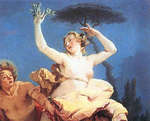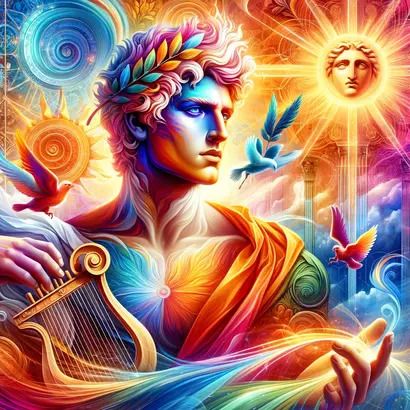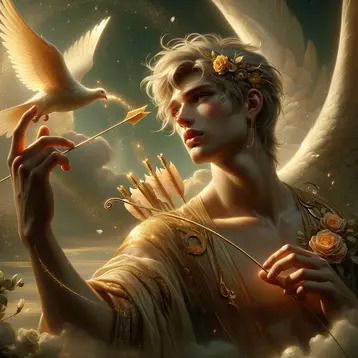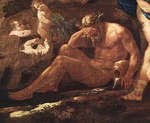
Daphne
Daphne :: The Naiad Nymph
Daphne, a figure of grace and natural beauty in Greek mythology, was a Naiad nymph, a minor goddess associated with bodies of fresh water such as fountains, wells, springs, and streams. Her lineage varied in different myths, but she was commonly described as the daughter of a river god, either Peneus or Ladon.
Myth of Apollo and Daphne
The most renowned myth involving Daphne is her encounter with Apollo, the god of light, music, and prophecy. According to the legend, Daphne's extraordinary beauty captivated Apollo, who had been struck by a love-inducing arrow from Eros, the god of love. Infatuated, Apollo pursued Daphne, who was determined to evade his advances and maintain her independence.
The Pursuit and Transformation
As Apollo chased Daphne, she desperately sought to escape. In a climactic moment, just as Apollo was about to reach her, Daphne called upon her father or the earth goddess Gaea for rescue. Her plea was answered, and she was transformed into a laurel tree, a symbol of her desire for freedom and purity. This transformation served as both an escape and a permanent reminder of her wish to remain untouched and free.
The Laurel and Apollo
Following Daphne's transformation, the laurel tree became sacred to Apollo. It symbolized his unrequited love and the respect he held for Daphne. The laurel was used in various rituals and ceremonies associated with Apollo, including the Pythian Games, where laurel wreaths were awarded to victors. The burning of laurel leaves at the oracle of Delphi, where Apollo's priestess Pythia delivered prophecies, signified the enduring connection between Apollo and Daphne.
Daphne's Legacy
The myth of Daphne and Apollo resonates with themes of love, pursuit, and transformation. It has been a popular subject in art and literature, often depicted as a tale of unrequited love and the respect for personal autonomy. The image of Daphne transforming into a laurel tree has become a powerful symbol of the merging of human with nature and the enduring legacy of mythological narratives.
Daphne Q&A
Link/Cite Daphne Page
Written by: The Editors of GreekMythology.com. GreekMythology.com editors write, review and revise subject areas in which they have extensive knowledge based on their working experience or advanced studies.
For MLA style citation use: GreekMythology.com, The Editors of Website. "Daphne". GreekMythology.com Website, 30 Nov. 2023, https://www.greekmythology.com/Other_Gods/Minor_Gods/Daphne/daphne.html. Accessed 27 April 2024.




